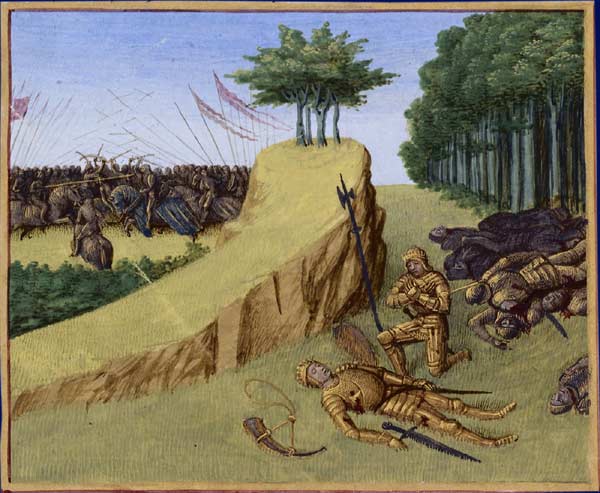After Charlemagne defeated the Christian Basques in Pamplona, why did he retreat through Roncevaux Pass (thereby setting himself up for ambush) instead of going on to conquer more of Iberia?
"After the negotiation at Zaragoza, Charlemagne heard news of a Saxon revolt in the North, which forced him to retreat back to his kingdom. But before leaving Spain he decided to further secure his hold on the Vascone territory. Charlemagne first eliminated any possible opposition from the natives of the region (including the Basque tribes), believing that many of them were allied with the Moors. He gave orders to tear down the walls of the Basque capital Pamplona, possibly fearing that it could be used for future conflicts. Some primary sources suggest that he destroyed the city altogether, and many towns in the region were also razed. Garrisons and military outposts were placed throughout the territory, and there were accounts of the Franks' harsh treatment of the Basques during their occupation. After securing the region, Charlemagne marched for the Pyrenees mountain pass in hopes of returning to France." Wikipedia
My reason for questioning this is that the Saxon Wars had been going on for seven years before Charlemagne's invasion of Iberia. Logically, why didn't he simply go on and capture some more of Spain, instead of leaving and fighting the Saxons? Did he expect to gain more territory by battling the Saxons than by battling the Basques and Moors, or what?
